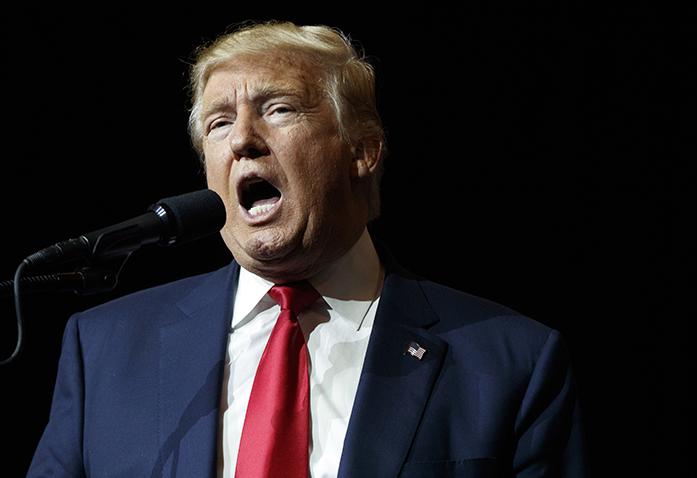By Joseph Lane
Late in his campaign, Donald Trump promised that one of his plans for the presidency was to “Drain the Swamp.” This catchy phrase, of course, refers to the elimination of establishment figures from Washington, D.C.
In fact, one of the major points Trump used to oppose Hillary Clinton was that she was too engrained in Washington culture and had benefited from it so much that she would be unable to make real change. Yet as he has started to fill some of his Cabinet and transition positions, Trump has not only failed to “drain the swamp,” he has filled his Cabinet with the lowest of the low from within it.
Trump’s selections are leading pundits to question with whom his allegiances lie. After all, he’s wavering on key right-leaning positions (such as the complete repealing of Obamacare) while still selecting staunch conservatives for many positions.
But more concerning than his selections for certain positions, are Trump’s political actions otherwise. His latest move is upsetting because it emphasizes, yet again, Trump’s commitment to destroying the environment. Only this time, he is making moves that serve to deliberately undermine progress made in prior administrations.
This past week, Trump’s transition team distributed a 74-point questionnaire to the workers at the Department of Energy. Among other things, this questionnaire asked the workers to essentially inventory their experiences with climate-change conferences and any professional society memberships. As NPR has outlined, the question that remains is what the Trump administration plans to do with this information.
Myron Ebell, a noted climate-change skeptic, is set to head the EPA transition team and, according to NPR, another noted climate denier, Scott Pruitt has been tapped to ultimately lead the EPA. A major oil executive, Rex Tillerson, was just selected as secretary of State. It is no longer unreasonable to question actions as simple as a survey.
The fear of civil-rights lawyers and others close to this story is that Trump’s administration may be trying to silence climate-change scientists and to unravel the climate and environmental work completed during the Obama administration.
Until something like this actually happens in the EPA or the Energy Department, it is an extreme leap to make. But not knowing the purpose of this survey leads to bigger questions and creates the possibility that Trump and his administration may one day act on this information.
The civil-rights lawyers who have expressed concern, according to NPR, specialize in whistleblower protections. These lawyers believe that, at best, Trump is trying to limit or influence the research being done at the Energy Department and, at worst, target the employees who hold differing viewpoints from the president.
What Trump’s administration is doing here is not illegal until there is some sort of action against a freedom of association. But it sets a dangerous precedent to have the answers to this survey looming over the heads of these employees. Worse still, the scientists and workers of the Energy Department are in a Catch-22 of sorts. If they’re afraid that Trump will negatively act on this information, then they cannot give it, but that’s a form of insubordination. On the other hand, taking the survey may lead to action by Trump’s administration against them.
If Trump’s questionnaire is ultimately used to encourage scientists to ignore the data about climate change, then this is a huge problem. But the even bigger problem is that, at this point, it would no longer be surprising.



